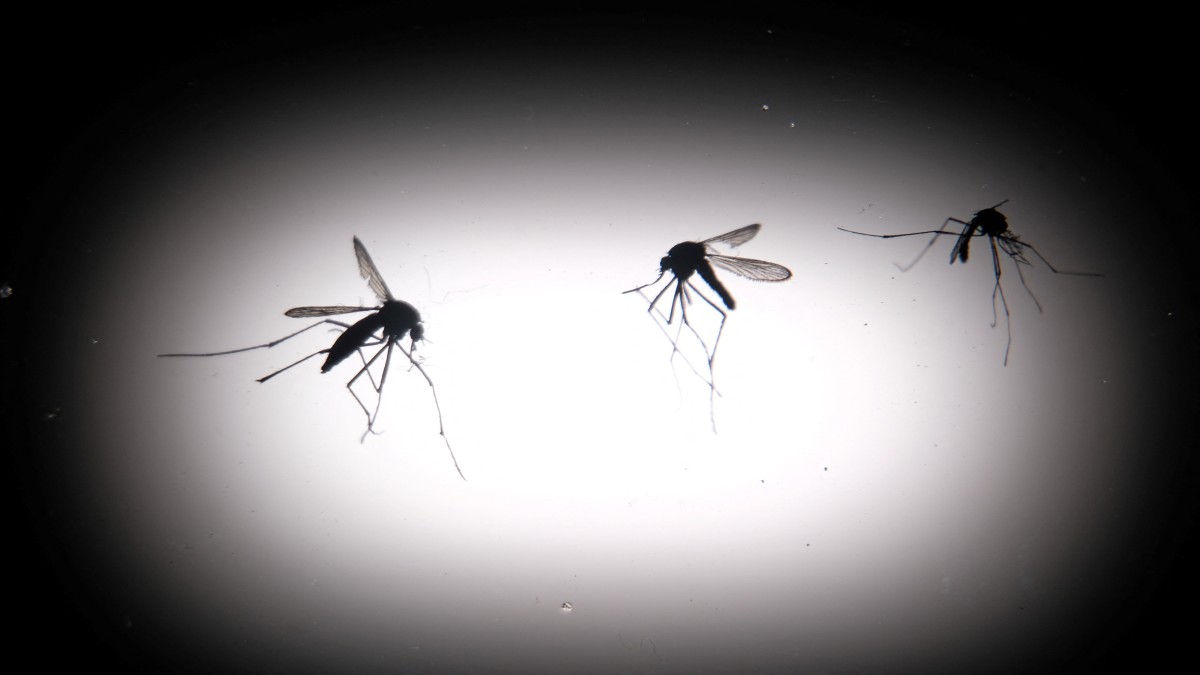Researchers have found a unique method of combating mosquito-borne diseases like dengue, yellow fever, and Zika.
Male mosquitoes use their hearing to track out females based on their appealing wingbeats, and they have sex while flying in midair. Female mosquitoes are the ones that transmit diseases to humans. Thus, scientists believe preventing them from having offspring will lower the overall number of mosquitoes.
A team of researchers from the University of California says deafening male insects make them unable to mate and reproduce.
Let’s take a closer look.
Deaf mosquitoes don’t mate
The University of California, Santa Barbara, Irvine team analysed Aedes aegypti mosquitoes, which annually infect over 400 million people with illnesses.
After carefully observing the insects’ aerial mating behaviours, which can last anywhere from a few seconds to less than a minute, they devised a genetic method to interfere with it.
They specifically targeted trpVa, a protein that seems to be crucial for hearing. The team knocked off the gene using CRISPR-Cas9.
Neurones in the altered mosquitoes that are typically engaged in sound detection could not react to the wingbeats or flight tones of possible mates. The alluring sound was ignored.
“If they can’t hear the female wingbeat, they’re not interested,” Professor Craig Montell said.
Wild (non-mutant) males, on the other hand, copulated quickly, often, and fertilised almost every female in their cage.
The researchers claimed that because mating by deaf males was completely prevented, the effect of the gene knockout was “absolute.”
Also read: Over 12 million cases, 8,000 deaths in 2024: Is dengue the new global pandemic?
How will it help in fighting dengue?
The findings, which were published in the Proceedings of the National Academy of Sciences journal, may significantly alter our approach to managing the spread of disease by effectively managing mosquito vector populations.
BBC reached out to Dr Joerg Albert, a specialist in mosquito mating from the University of Oldenburg in Germany, about what he thought of the study.
According to him, targeting the sense of sound was a viable method of controlling mosquitoes, but it required research and management.
“The study provides a first direct molecular test, which suggests that hearing is indeed not only important for mosquito reproduction but essential. Without the ability of males to hear – and acoustically chase – female mosquitoes might become extinct.”
He noted that releasing sterile males in regions where there are pockets of diseases carried by mosquitoes is another strategy under study.
Also read: What is driving a surge in dengue cases in Europe?
Similar study
Researchers from Japan’s Nagoya University have discovered how the Asian tiger mosquito (Aedes albopictus) and yellow fever mosquito (Aedes aegypti) differentiate themselves from other species. These species’ males use the particular frequencies of sound produced by the flapping wings of females to identify their own species.
These results, which were reported in iScience, have ramifications for creating novel artificial flight sound-based mosquito control techniques.
“In the past few decades, the territories of the two types of mosquitoes have increasingly overlapped. Mainly at dusk, male Aedes mosquitoes form a swarm, a large group of flying males waiting for fertile females to fly in,” Dr Matthew Su, joint corresponding author of the study, was quoted as saying by Phys.org, adding, “When a female enters the group, the male uses his excellent hearing to hear her wing sound, approach her, and attempt to mate. But females of other species could enter the group too, so we became interested in how males avoid mating with the wrong species.”
To quantify and compare the frequencies of male and female mosquito wingbeats across species, the study team placed microphones in mosquito breeding cages.
In comparison to yellow fever mosquitoes, they found that Asian tiger mosquitoes, both male and female, exhibited greater wing sound frequencies. They postulated that this distinction accounted for mosquitoes’ avoidance of mating with the incorrect species.
They observed that male Asian tiger mosquitoes consistently responded to higher frequencies of sound than male yellow fever mosquitoes when they produced artificial female wing sounds and played them back to male mosquitoes.
According to the researchers, oviposition and sound traps together may be used to stop mosquitoes from breeding and eradicate them, but this would not be a desirable result.
Despite their potential to spread disease, mosquitoes are an essential component of the food chain, serving as food for fish, birds, bats, and frogs, among others, and some are crucial pollinators.
“Elimination may not be a good idea because we don’t know the effects on the ecosystem. Instead, we feel that limited biocontrol is better,” Dr Su explained. “Ultimately, we will have to live together with mosquitoes, ideally separately. Therefore, we have to understand them and drive numbers down to levels where diseases are less likely to be transmitted.”
With inputs from agencies


)
)
)
)
)
)
)
)
)



